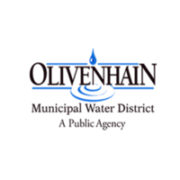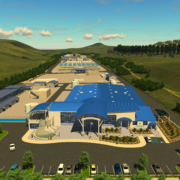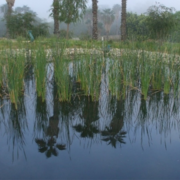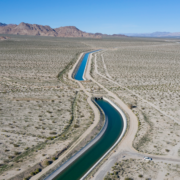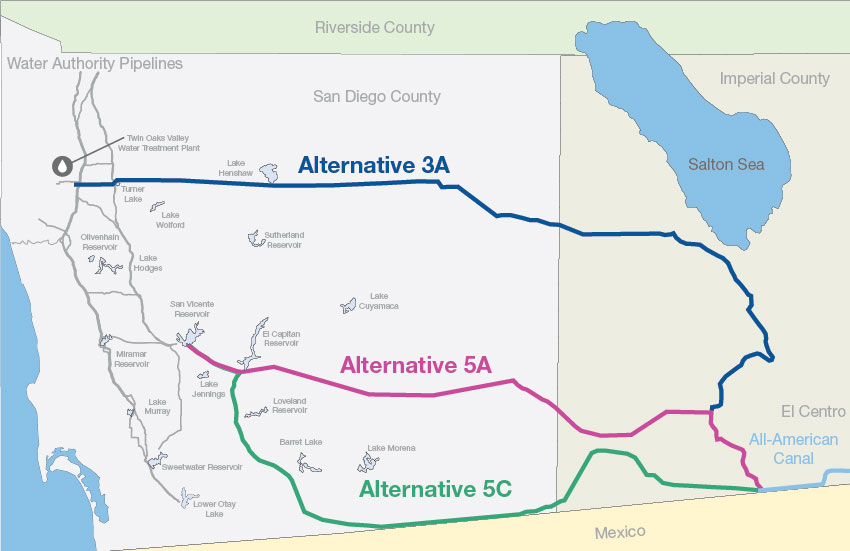The California Department of Water Resources has awarded more than $15 million in grant funds to advance several regional water projects in San Diego County, ranging from water recycling and reuse to water conservation.
The San Diego County Water Authority submitted the funding request on behalf of the San Diego Integrated Regional Water Management Program, or IRWM. The San Diego IRWM Program began in 2005 as an effort by water agencies, wastewater agencies, stormwater and flood managers, watershed groups, business leaders, disadvantaged communities, tribes, agriculture, and nonprofit stakeholders to improve water resources planning in the region.
The statewide IRWM Program is supported by bond funding from the California Department of Water Resources to fund competitive grants for projects that improve water resources management.
Collaboration with county agencies, nonprofits improves water supply and conservation
“These grants will provide much-needed funding for important local water supply projects and water-use efficiency measures, along with a disadvantaged community project in National City,” said Water Authority Board Chair Jim Madaffer. “Regional collaboration by the Water Authority and a host of partners makes these projects possible. Once again, this shows how San Diego County is stronger together.”
Madaffer praised the San Diego IRWM Regional Water Management Group and the Regional Advisory Committee for their work over the past year to secure the $15,336,336 grant. Since 2008, the San Diego region has secured more than $111 million in funds for 74 high-priority water management projects through the IRWM process. The projects help to achieve goals established in the San Diego IRWM Program and the Water Authority’s Urban Water Management Plan.
The following regional water projects will receive funding in the current round:
- Paradise Valley Creek Water Quality and Community Enhancement, City of National City, Flood Damage Reduction, $3,681,056
- Pure Water Oceanside, City of Oceanside, Water Supply–Groundwater, $3,115,000
- North County Recycled Water Project, San Elijo Joint Powers Authority, Water Supply–Recycled Water, $2,820,000
- North City Pure Water Facility Influent Pump Station and Conveyance Pipeline, City of San Diego, Water Supply–Recycled Water, $1,477,600
- 2020 Regional Water-Use Efficiency Programs, San Diego County Water Authority, Water Conservation, $1,440,000
- San Elijo Stormwater Capture & Reuse, San Elijo Joint Powers Authority, Water Supply–Recycled Water, $1,195,000
- Lower Santa Margarita River Indirect Potable Reuse Pilot Project, Fallbrook Public Utility District, Water Supply–Recycled Water, $687,500
In addition, the grant allocates $920,180 to the Water Authority to administer the grant.
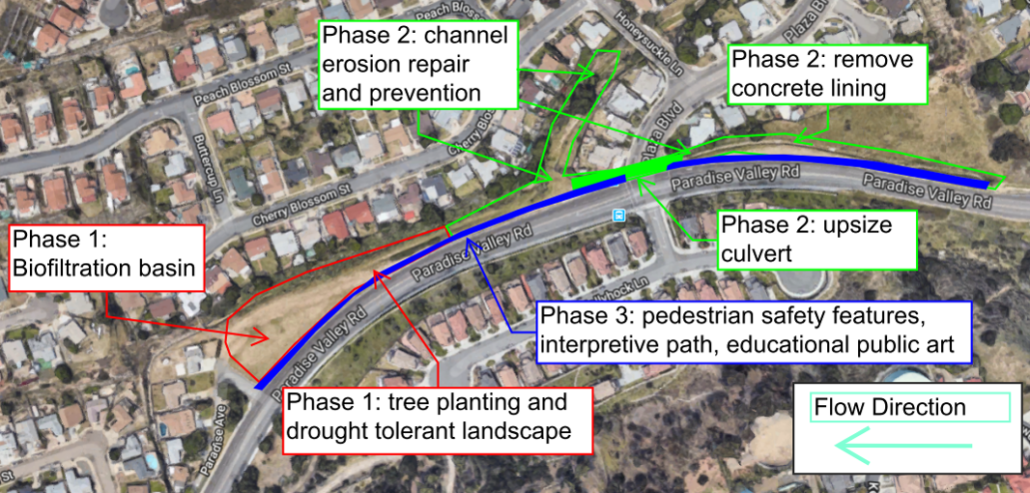
The Paradise Valley Creek Water Quality and Community Enhancement project in the City of National City is among water projects receiving state grant funds. Graphic: City of National City
Regional approach to create resilient and diverse water supply portfolio
“By working together for more than 12 years, the regional IRWM Program has created a legacy of collaboration by public agencies and nonprofit organizations in the region to increase the long-term reliability and resiliency of the San Diego region’s water supply and diversify our local supply,” said Mark Stadler, San Diego regional IRWM program administrator. “Investing in water reuse, water efficiency, and conservation projects are key parts of our success to ensure a regional approach to integrated watershed management.”
On November 4, 2014, California voters approved Proposition 1, the Water Quality, Supply, and Infrastructure Improvement Act of 2014. Proposition 1 authorized $510 million in IRWM funding. Funds are allocated to 12 hydrologic region-based funding areas.
The Proposition 1 IRWM Grant Program, administered by DWR, provides funding for projects that help meet the long-term water needs of the state, including:
- Assisting water infrastructure systems adapt to climate change;
- Providing incentives throughout each watershed to collaborate in managing the region’s water resources and setting regional priorities for water infrastructure; and
- Improving regional water self-reliance, while reducing reliance on Sacramento-San Joaquin Delta.
“Water is such a vital resource, that it is critical we continue to take action to ensure communities have access to clean water supplies, reliable flood protection and healthy ecosystems.” said DWR Director Karla Nemeth when announcing the San Diego regional grant on July 3. “These grants will support agencies and projects to continue local momentum in creating a more diverse water supply portfolio, strengthening partnerships and addressing climate change.”

